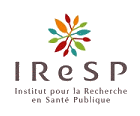COMPATEC SURVEY
Comparison in the funding of technical aids for people with disabilities. A European study
TEAM
The team consists of three IRDES researchers: Alice d'Estève de Pradel (socio-economist), Maude Espagnacq (demographer) and Sylvain Pichetti (health economist).
PRESENTATION
COMPATEC is a French multidisciplinary research project which aims to compare the prices and out-of-pocket payments of different technical aids - wheelchairs, hearing aids and visual aids - in several countries with comparable funding organisation.
COMPATEC will also open discussion on:
- the methods of financing this aid for users
- pricing rules
- the levers that would improve the efficiency of programmes for the provision of technical aids
Background
In France, many discussions are currently underway on the development of the financing of technical aids, some of which have already led to advanced and concrete reforms ("100% health" reform (réforme « 100 % santé »), one of the objectives of which is to have no out-of-pocket payments for certain hearing aids, etc.), while others are still at the proposal stage (revision of the reference system for technical aids under the Disability Compensation Allowance (PCH, Prestation de compensation du handicap), Denormandie and Chevalier report (2020), etc.). The COMPATEC project is intended to contribute to the reflection on these reforms based on lessons learned from experiences in other countries, particularly those that have undertaken large-scale financing reforms.
Objectives
The project initially aims to position France in terms of public solvency of out-of-pocket payments for the user, and price control, in comparison with other countries. A second aspect of the project consists in studying the countries that have recently undergone a change in their policy on the financing of technical aids (Belgium, United Kingdom, Sweden, Quebec) in order to enrich current reflections on the financing of these aids in France. The main objective of this project is to compare France with other countries and to propose possible improvement measures, both to increase the satisfaction of users of assistive devices and to improve the efficiency of financing. The research aims to compare three types of assistive devices: wheelchairs, hearing aids and visual aids. Questions are asked about their prices, public funding - national or local - the role of private funding (complementary private insurance or other sources) and the final out-of-pocket payments for the user.
Methodology
The methodology is based on the implementation, in a first stage, of an internet questionnaire which will aim to collect standardised information on public solvency, the level of out-of-pocket payments and price control for each type of technical aid (wheelchair, hearing aid, visual aid). To this end, a standardised questionnaire based on typical cases will make it possible to understand, for a "standard" technical aid (wheelchair, hearing aid, visual aid), the procedure to be carried out by the applicant, the method of access to technical aids, public participation and the user’s out-of-pocket payments. This questionnaire will be carried out in the following countries: Belgium, Germany, Norway, United Kingdom, Quebec, Spain, Sweden. In a second stage, a field study will be carried out in three countries that have changed their policy on financing technical aids (Belgium, United Kingdom, Sweden), and in a fourth country (Quebec), which has significant experience of lending recycled devices. These study trips will thus enable us to meet different actors in each country to understand the issues at stake and the possible obstacles to these changes.
REALISATION PERIOD
From March 2020 to March 2022.
Internet questionnaire: first quarter 2021.
FUNDER
Institute of Public Health Research (IRESP, Institut de recherche en santé publique) - Call for Proposals - (IRESP AAP) 2019 "Disability and loss of autonomy".
